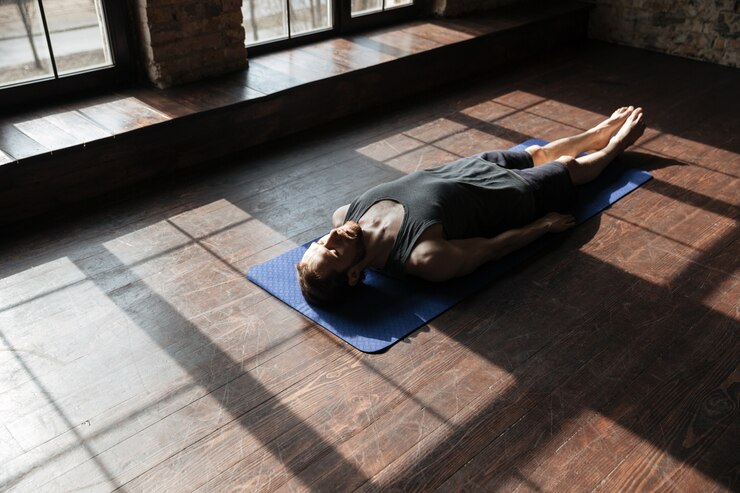Sleep and Athletes: The Secret to Peak Performance

In the realm of professional sports, athletes constantly search for the next big advantage to enhance their performance. While rigorous training, balanced nutrition, and mental fortitude are essential components, sleep often emerges as the unsung hero. Adequate sleep is vital for recovery, cognitive function, and overall athletic performance. This blog will delve into the critical importance of sleep for athletes, with a special focus on the unique sleep schedule of one of the greatest soccer players of all time, Cristiano Ronaldo.
Don't miss the chance to become a champion, join our team:
The Vital Role of Sleep in Athletic Performance
Before exploring Ronaldo’s sleep habits, it’s essential to understand why sleep is so critical for athletes:
-
Physical Recovery: During sleep, especially deep sleep, the body undergoes significant repair processes. Growth hormones are released, facilitating muscle repair, growth, and overall recovery from the physical stresses of training and competition.
-
Mental Sharpness: Cognitive functions such as memory, learning, decision-making, and reaction times are enhanced by adequate sleep. REM sleep, in particular, plays a crucial role in processing and consolidating new information and skills.
-
Injury Prevention: Athletes who prioritize sleep are less prone to injuries. Well-rested bodies have better coordination, faster reflexes, and a lower likelihood of making errors that could lead to injuries.
-
Immune Function: Sleep boosts the immune system, reducing the risk of illness. This is particularly important for athletes who need to stay healthy to maintain consistent training and performance levels.
-
Emotional Stability: Good sleep contributes to better mood regulation and stress management, helping athletes cope with the pressures of competition.
Cristiano Ronaldo: A Case Study in Sleep Optimization
Cristiano Ronaldo, one of the most successful and recognizable soccer players globally, has a highly unconventional yet meticulously planned sleep routine that reflects his commitment to maintaining peak performance.
Ronaldo’s Polyphasic Sleep Pattern
Ronaldo follows a polyphasic sleep pattern, which involves taking multiple naps throughout the day instead of one long sleep period at night. His sleep coach, Nick Littlehales, introduced this method to help Ronaldo maximize his rest and recovery.
Sleep Routine:
- Five 90-minute naps throughout the day
This approach totals around 7.5 hours of sleep in a 24-hour period, broken down into manageable chunks that fit into Ronaldo’s demanding schedule.
The Science Behind Polyphasic Sleep
Polyphasic sleep is not a new concept; it has been used historically by various individuals, including Leonardo da Vinci and Nikola Tesla. The idea is to take advantage of multiple sleep cycles, particularly the most restorative stages of sleep, to maintain high levels of alertness and recovery.
Advantages of Polyphasic Sleep for Ronaldo:
- Flexibility: This sleep pattern allows Ronaldo to align his rest periods with his training, travel, and match schedules.
- Enhanced Recovery: Multiple naps ensure that Ronaldo’s body frequently enters restorative stages of sleep, aiding muscle recovery and overall physical rejuvenation.
- Consistent Alertness: By avoiding long periods of wakefulness, Ronaldo maintains high levels of mental and physical alertness throughout the day.
Nick Littlehales’ Approach to Sleep Coaching
Nick Littlehales, a renowned sleep coach, has worked with numerous elite athletes, including Ronaldo. Littlehales’ approach focuses on the quality of sleep rather than just the quantity. He emphasizes the following principles:
- Sleep Environment: Ensuring that the sleep environment is cool, dark, and quiet to promote uninterrupted rest.
- Sleep Hygiene: Establishing pre-sleep routines that include winding down activities and avoiding screens to minimize blue light exposure.
- Consistency: Maintaining a consistent sleep schedule, even when following a polyphasic pattern.
- Recovery Focus: Prioritizing recovery periods that align with the athlete’s training and competition demands.
How Ronaldo’s Sleep Routine Translates to Performance
Ronaldo’s commitment to optimizing his sleep is evident in his sustained performance on the soccer field. Even as he ages, he continues to compete at the highest levels, demonstrating exceptional endurance, agility, and mental sharpness. His ability to maintain such high standards of performance is a testament to the effectiveness of his tailored sleep strategy.
The Broader Implications for Athletes
While Ronaldo’s polyphasic sleep pattern may not be suitable for everyone, his dedication to prioritizing sleep offers valuable lessons for athletes at all levels. Here are some key takeaways:
- Prioritize Sleep: Recognize the importance of sleep as a fundamental component of training and recovery.
- Personalize Your Approach: Tailor your sleep schedule to fit your lifestyle, training demands, and personal preferences.
- Focus on Quality: Ensure your sleep environment and pre-sleep routines support high-quality rest.
- Monitor and Adjust: Pay attention to how different sleep patterns affect your performance and adjust accordingly.
Conclusion
Sleep is an often underestimated yet crucial element of athletic success. Cristiano Ronaldo’s innovative approach to sleep demonstrates that prioritizing rest can significantly enhance performance, recovery, and longevity in sports. By understanding and applying the principles of effective sleep strategies, athletes can unlock their full potential and achieve their goals. Whether through traditional monophasic sleep or more unconventional polyphasic patterns, the key is to recognize that sleep is a powerful tool in the athlete’s arsenal.